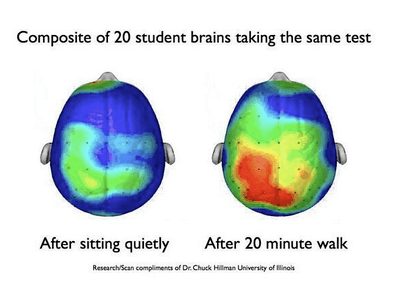Are you learning a new skill? Whether you’re learning a language, instrument, or sport, there’s science-backed learning hacks you can systematically follow to learn it faster.
With technology, communication tools, and access to information, there’s no limit to what you can learn today. We’ve curated our top 7 learning hacks that you can use for your benefit.
1. Set the right goals from the start
Having the right goals in place is the first step in learning anything. It’s the foundation that will set you up for either success or failure. Most people set vague goals that doesn’t help them in the long term.
For example, let’s say you want to learn how to speak Spanish in order to travel to South America.
A bad goal would be: “I want to learn Spanish so I can go to South America.” Why? Because it’s too general.
A great goal must include the following factors:
- Visualization
- Measurable
- Deadline
An example goal of a better goal would be: “I want to be able to hold a 30-minute conversation in Spanish with a native speaker from Buenos Aires by July 2017.”
Notice the difference in specificity, visualization, and timeline to learn. Keep these factors in mind the next time you set a goal.
2. Schedule it in
What doesn’t get scheduled in the calendar, doesn’t get done. All of us love to complain about one thing, lack of time. But learning a new skill doesn’t have to take up a large portion of your day. In fact, in as little as 30 minutes per day, you can learn something new.
While it may not be a game changing learning session, these small lessons will quickly accumulate over time.
3. Deconstruct the skills
Next is to deconstruct and breakdown the individual components you need to learn. Let’s take learning Spanish to continue our example. You could break the skill down to writing, reading, conversation, and listening.
In his popular book, The Four-Hour Chef, Tim Ferriss recommends asking the following question: “What are the minimum learnable units, the LEGO blocks, I should be starting with?” This will help you analyze what are the starting points that you should cover.
4. Focus on the 20% vital learnings
Most of the time, resources, and money we spend are not as impactful towards our end goal as we think. An Italian economist named Vilfredo Pareto came up with a law called the Pareto’s Principle. It explains that 20% of tasks, activities, and time will often provide 80% of our desired results.
For example, if you want to learn a language, the 20% could be focusing on learning how to hold a conversation in your target language instead of focusing on reading, writing, etc.
5. Have a stake
Willpower is largely overestimated in our society. Humans, as much as we have progressed, need to be incentivized in one way or another. This could be a reward that we receive for doing something, or it could be a punishment that we get for not doing something.
I recommend checking out StickK, which is a free goal-setting platform created by behavioral economists that put real money on the line if you fail to meet your goals. The more that’s on the line, the more committed you’ll be.
6. Learn from a professional teacher
If there’s any shortcut in life, it’s to learn from someone who’s done it and trained to teach you. Sure, you can try to do it all on your own, but that’ll take significantly longer in terms of time, sometimes years.
This is why having a personal trainer to help you get in shape has shown to provide individuals the fastest and most effective results. Or why the best performers in business have business coaches and mentors by their side at all times.
7. Take care of yourself
There’s no question that health is one of the most important things we should prioritize to learn anything faster. If done well, it will trickle down to help us pick up knowledge faster and remember more information.
This boils down to not just more, but better sleep and exercise. Exercise improves learning on three levels. It optimizes your mindset, by improving alertness, attention, and motivation. It prepares and encourages nerve cells to intersect, preparing our brain to acquire new information. And it spurs the development of new nerve cells from stem cells in the hippocampus, an area of the brain related to memory and learning.
Here’s a visual representation of how our brain is affected by sitting versus taking a quick 20-minute walk.
In conclusion, these simple learning hacks can help anyone of us fill the skill gaps we need to thrive in our professional career and personal lives. Sometimes, just working harder is not the solution. It’s working smarter.













































